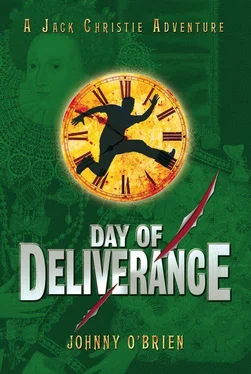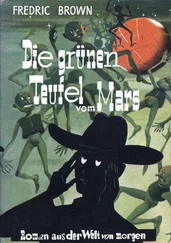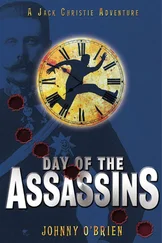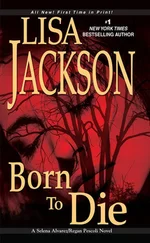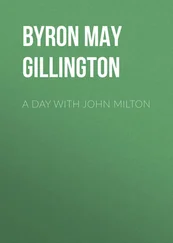Johnny O'Brien - Day of Deliverance
Здесь есть возможность читать онлайн «Johnny O'Brien - Day of Deliverance» весь текст электронной книги совершенно бесплатно (целиком полную версию без сокращений). В некоторых случаях можно слушать аудио, скачать через торрент в формате fb2 и присутствует краткое содержание. Жанр: Фантастика и фэнтези, Детская фантастика, на английском языке. Описание произведения, (предисловие) а так же отзывы посетителей доступны на портале библиотеки ЛибКат.
- Название:Day of Deliverance
- Автор:
- Жанр:
- Год:неизвестен
- ISBN:нет данных
- Рейтинг книги:3 / 5. Голосов: 1
-
Избранное:Добавить в избранное
- Отзывы:
-
Ваша оценка:
- 60
- 1
- 2
- 3
- 4
- 5
Day of Deliverance: краткое содержание, описание и аннотация
Предлагаем к чтению аннотацию, описание, краткое содержание или предисловие (зависит от того, что написал сам автор книги «Day of Deliverance»). Если вы не нашли необходимую информацию о книге — напишите в комментариях, мы постараемся отыскать её.
Day of Deliverance — читать онлайн бесплатно полную книгу (весь текст) целиком
Ниже представлен текст книги, разбитый по страницам. Система сохранения места последней прочитанной страницы, позволяет с удобством читать онлайн бесплатно книгу «Day of Deliverance», без необходимости каждый раз заново искать на чём Вы остановились. Поставьте закладку, и сможете в любой момент перейти на страницу, на которой закончили чтение.
Интервал:
Закладка:
After a little while, they walked on, past the entrance to King’s College until, finally, Fanshawe announced, “We’re here.”
To his left Jack peered through an archway into the courtyard of yet another college. It was certainly not as large or as grand as the great colleges they had passed already, but it was still very beautiful. Opposite the arched gateway, Jack could see an elegant chapel set into the college buildings.
“Is this Corpus Christi College?”
“Yes — this is where we will meet my friends and I have made arrangements for us to stay. You can make your way down to your lodgings at Queens’ later. First things first, however — we must see to the cart and donkey…”
As they got themselves organised, they were distracted by a group of young men who approached from further down the street. They appeared to be in good humour and were singing loudly. They had been drinking. As they neared the college gate, Fanshawe went up to one of the men, who had wavy auburn hair and wore a black cloak with large buttons. He was a young man with a roundish, pale face, a light moustache and beard — not unlike Fanshawe’s. He was unstable on his feet and he put out one hand to steady himself on the college wall.
“May I help you, sir?” Fanshawe asked the man. Fanshawe looked a little closer, peering into the man’s face, his brow furrowed. “Marlowe? Christopher Marlowe?”
Marlowe looked back at Fanshawe, blinking and trying to focus his eyes. He let out a strange, strangled giggle, swayed again and was violently sick.
Corpus Conundrum
They were standing in the great wood-panelled hall of Corpus Christi College. Dinner had finished and Marlowe’s group of players had been permitted to clear the far end of the hall to complete an evening rehearsal of his new play, Tamburlaine the Great. The arrival of Jack, Angus, Fanshawe, Trinculo and Monk had caused quite a stir among the players. Contrary to Monk’s expectation, Fanshawe was well known to Marlowe and a number of his actors. They had been welcomed (particularly as there was a shortage of extra soldiers for the play); however, things were not going according to plan.
Marlowe himself, having been sick at the college gates when they met, was now flat out on the floor at the far end of the hall, sleeping off a heavy afternoon in the nearby pub, The Eagle. Meanwhile, the actor playing Mycetes, enemy of Tamburlaine, was rapidly following Marlowe into a comparable stupor, having discovered the key to the wine cellar beneath the hall. In addition, progress had been further delayed, as Marlowe had insisted that, in order to mark the occasion of the first public performance of Tamburlaine , he would arrange for a local artist to paint a portrait of the group. Prior to each rehearsal at college, the painter had lined up the entire cast in full costume and started scratching away at his easel. He was fussy and temperamental and the arrival of Fanshawe, who insisted that they should also be in the picture, had nearly caused him to walk out. Reluctantly, he had been persuaded to stay and the group posed appropriately, with Jack and Angus off to one side.
Once the actors had been standing for forty minutes they were starting to get bored and impatient to get on with the rehearsal. It had also become apparent that Mycetes had, in fact, smuggled an entire case of wine from the cellar and was happily circulating bottles around the group. Gradually the noise level increased and the behaviour and language became increasingly coarse. When half a loaf of bread left over from dinner flew from one side of the hall to the other, rapidly followed, in the opposite direction, by a large lamb chop, Jack felt it was probably time to leave. He didn’t want to be there when the college master turned up to witness them in the middle of that most ancient of university traditions — the drunken food fight.
Jack nudged Angus. “Think it’s time to move.”
“Just when it was getting interesting.”
Jack turned to Fanshawe, who seemed to be the only one taking a rather dim view of the proceedings. “Harry — shouldn’t we see how Marlowe is doing… remember your plays… you wanted to show them to him?”
Fanshawe, and the faithful Trinculo, needed no excuse and they slipped over to the far end of the hall where Marlowe lay, still snoring loudly. They woke him and he slowly regained his senses. He pulled himself to his feet and stood unsteadily, clutching his head and groaning.
“What happened?” he asked woozily, gazing across at the melee in the hall. Monk had compensated for weeks of starvation rations by satiating himself with food and wine. Then, somehow, he had managed to suspend himself from the chandelier that hung from the centre of the vaulted ceiling. He now swung gently to and fro, slurping from a bottle.
The artist finally packed up his things and marched towards them in a furious temper, the unfinished canvas under one arm.
“I will send you the bill,” he announced as he flounced past. Jack caught a glimpse of the unfinished painting as it swished before them, and saw a preliminary outline of Fanshawe, Trinculo, Monk, Angus and himself.
Marlowe groaned. “No chance of rehearsals now. In fact, there will be beatings at the buttery hatch for this mess, for sure.” A sudden look of concern washed over his face. “But come, we have more pressing business. We should retire to my rooms.”
Marlowe had acquired two adjoining rooms in the college and the embers of a log fire still smouldered in the grate. Despite this, the room remained icily cold. Fanshawe stoked up the fire and added a couple of logs, which sparked to life. The room was a mess — papers and clothes were strewn everywhere. As Marlowe sobered up, it became increasingly apparent that he was nervous about something. When they had met that afternoon, he had been blind drunk and seemed not to have a care in the world. But now he was different. On entering his rooms he had carefully locked the door behind them and peered furtively from the window down to the quad below. Next, he had reached for a large bottle of brandy, which sat in front of them on a small wooden table. Having only just recovered from one drinking bout, he nevertheless poured some brandy into a glass tumbler and drank the whole lot in one go before refilling his glass. He then reached for four more tumblers and filled them all to the brim. Jack remembered Beattie’s translation of the words beneath Marlowe’s portrait in her book: What feeds me destroys me.
In fact, the playwright looked a bit like his portrait. He had intelligent eyes, wavy brown hair, a round, somewhat pallid face and a thin moustache and beard. Jack felt he should be in awe of the man who had so influenced the theatre. But instead Jack found himself surprised by his youth. Marlowe was only twenty-three — scarcely eight years older than Jack. It was hard to think of him as a great literary figure. Jack remembered that in only four years Marlowe would be dead — killed by a dagger stabbed just above his right eye in a brawl. As Miss Beattie had said, many thought it was murder — or even an assassination — brought about by Marlowe’s love of risk-taking, or perhaps the rumour that he was a spy or double agent caught up in the dark world of Elizabethan espionage. Jack wondered whether he should inform the great man exactly how and when he would die and whether, in fact, this would accelerate or slow his creative output.
Promptly, Marlowe emptied his glass for a second time, leaned back into his chair and stared at the ceiling with an expression of deep concern, then his face suddenly changed and he let out a strange, manic giggle. Clearly, the great Christopher Marlowe was slightly unhinged.
“… and this is another of my favourites — a play about Scotland — it’s called MacGregor .” Fanshawe tried to puncture Marlowe’s pensive mood by presenting some of his own work. He had brought his chest of papers up to the room to show Marlowe, hoping that he might generate sufficient enthusiasm to close a sale. Marlowe leafed through the papers, but he was too distracted.
Читать дальшеИнтервал:
Закладка:
Похожие книги на «Day of Deliverance»
Представляем Вашему вниманию похожие книги на «Day of Deliverance» списком для выбора. Мы отобрали схожую по названию и смыслу литературу в надежде предоставить читателям больше вариантов отыскать новые, интересные, ещё непрочитанные произведения.
Обсуждение, отзывы о книге «Day of Deliverance» и просто собственные мнения читателей. Оставьте ваши комментарии, напишите, что Вы думаете о произведении, его смысле или главных героях. Укажите что конкретно понравилось, а что нет, и почему Вы так считаете.
